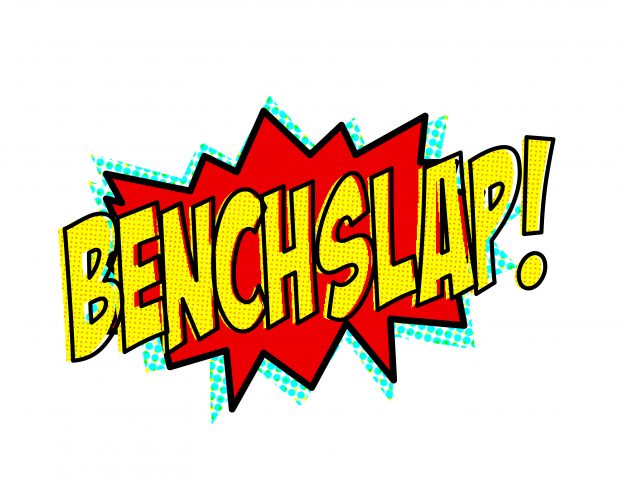
In
dinosaur
times,
a
company
called
Memorex,
which
started
as
a
computer
tape
company
in
the
1960s,
had
a
commercial
that
dinosaur
lawyers
will
probably
remember
to
this
day.
The
commercial
featured
Ella
Fitzgerald,
and
if
you
don’t
know
who
she
is,
shame
on
you.
Check
out
some
of
her
recordings
on
YouTube.
There’s
never
been
anyone
like
her.
In
the
ad,
she
sings
a
note
that
shatters
glass.
The
note
was
put
on
a
Memorex
audio
cassette.
(Remember
those?)
The
tape
was
then
played
back,
and
the
question
was
“Is
it
live,
or
is
it
Memorex?”
That
slogan
lasted
for
two
decades
(a
long
time
for
any
ad
campaign.)
So,
can
the
same
be
asked
of
the
difference
between
actual
and
artificial
intelligence? In
other
words,
is
it
“live”
or
is
it
AI?
In
a
recent
ATL
post,
Jonathan
Wolf
commented
that
rather
than
just
competing
with
China’s
AI,
we
should
promote
the
development
of
actual
intelligence.
Instead
of
letting
AI
do
the
walking
and
talking,
let’s
fire
up
those
neurons
and
get
busy.
As
Wolf
points
out,
some
things
are
supposed
to
be
hard.
In
fact,
that
is
why
it’s
called
work
and
not
play.
Am
I
stating
the
obvious?
Every
time
I
see
that
pesky
AI
on
my
laptop,
I
want
to
strangle
it.
“Leave
me
alone,”
I
say.
“If
I
need
or
want
your
help,
I
will
ask
for
it.
Until
then,
go
pester
somebody
else
or
even
better,
as
my
uncle
used
to
say
to
a
troublesome
neighborhood
kid,
‘Go
out
and
play
in
traffic.’
Let
me
choose
my
own
words
in
my
own
voice.”
(And
yes,
I
did
write
this
column.
Please,
spare
me
the
snarky
comments.)
Does
AI
lead
to
lawyer
laziness?
Does
it
lead
to
a
loss
of
critical
thinking?
Is
it
too
easy
for
us
to
let
AI
do
the
heavy
lifting?
Remember
that
sanctions
exist
for
lawyer
fuzzy
thinking
or
worse,
not
thinking
at
all.
A
recent
example
of
how
AI
can
lead
lawyers
astray
is
a
pending
case
in
Wyoming,
where
eight
of
the
nine
cited
cases
in
a
brief
were
figments
of
AI’s
vivid
and
erroneous
imagination
or
should
I
say
hallucinations.
Oopsie.
To
say
that
the
court
was
displeased
is
an
understatement.
(Is
it
real,
or
is
it
AI?) As
David
Lat
points
out
in
his
post
on
this
benchslap,
it
was
not
just
a
snafu,
but
a
major
screw-up
of
epic
proportions.
The
Wyoming
district
court
issued
an
OSC
that
ordered
at
least
one
of
the
three
attorneys
of
record
to
provide
copies
of
the
hallucinated
(aka
cited)
cases
by
this
past
Monday.
The
attorneys
had
to
provide
sworn
declarations
as
to
(using
my
words,
not
the
court’s)
how
this
screw
up
happened
and
each
attorney’s
role
in
the
motion’s
preparation.
Sanctions
loom.
Is
this
example
carelessness?
Laziness?
A
misplaced
trust
in
AI
to
get
it
right?
A
combination
of
all
three?
Whatever.
This
case
reinforces
that
we
can’t
allow
AI
to
do
our
work
for
us.
Didn’t
we
learn
in
law
school
that
we
needed
to
not
only
read
the
cases
we
cited,
but
to
make
sure
they
were
still
good
law?
And
didn’t
we
also
learn
that
the
buck
stops
with
us?
(No
blaming
paralegals
or
other
staff
and
should
we
add
AI
to
that
list?)
We
are
paid
to
do
the
work,
not
AI.
Are
we
not
preparing
future
lawyers
for
a
world
in
which
critical
thinking
is
going
to
become
even
more
important
since
AI
can
do
the
scut
work
that
all
of
us
loathe?
(Does
anyone
actually
enjoy
propounding
written
discovery
and
answering
it,
usually
objecting
to
most
if
not
all
of
it?)
Critical
thinking
is
essential
to
every
lawyer’s
practice
and
taking
the
easy
way
out
is
not.
It’s
not
just
the
gigantic
whoopsie
in
the
Wyoming
case;
consider
the
possible
consequences.
How
much
in
sanctions
will
this
FUBAR
cost
them?
What
kind
of
discipline
might
these
lawyers
face?
Do
lawyers
think
about
collateral
consequences,
not
just
about
what
might
happen
in
the
case,
but
down
the
road?
Does
professional
reputation
mean
anything
any
more?
Given
today’s
penchant
for
over-sharing,
does
anyone
care?
So
stipulated
that
I
am
an
old
lady
lawyer,
but
I
wonder
if
Wolf
is
right,
that,
“our
collective
deficit
of
thinking
skills
will
keep
being
exploited
to
the
grave
detriment
of
all.”
Scary,
yes?
But
in
this
brave
new
world,
if
we
don’t
have
those
skills,
what
do
we
have?
We
will
not
only
have
lost
the
battle
but
also
the
war.
It’s
a
different
kind
of
arms
race,
but
one
even
more
costly
than
a
conventional
one.
Coming
in
second
is
not
where
we
should
want
to
be.
Jill
Switzer
has
been
an
active
member
of
the
State
Bar
of
California
for
over
40
years.
She
remembers
practicing
law
in
a
kinder,
gentler
time.
She’s
had
a
diverse
legal
career,
including
stints
as
a
deputy
district
attorney,
a
solo
practice,
and
several
senior
in-house
gigs.
She
now
mediates
full-time,
which
gives
her
the
opportunity
to
see
dinosaurs,
millennials,
and
those
in-between
interact
—
it’s
not
always
civil.
You
can
reach
her
by
email
at
[email protected].

